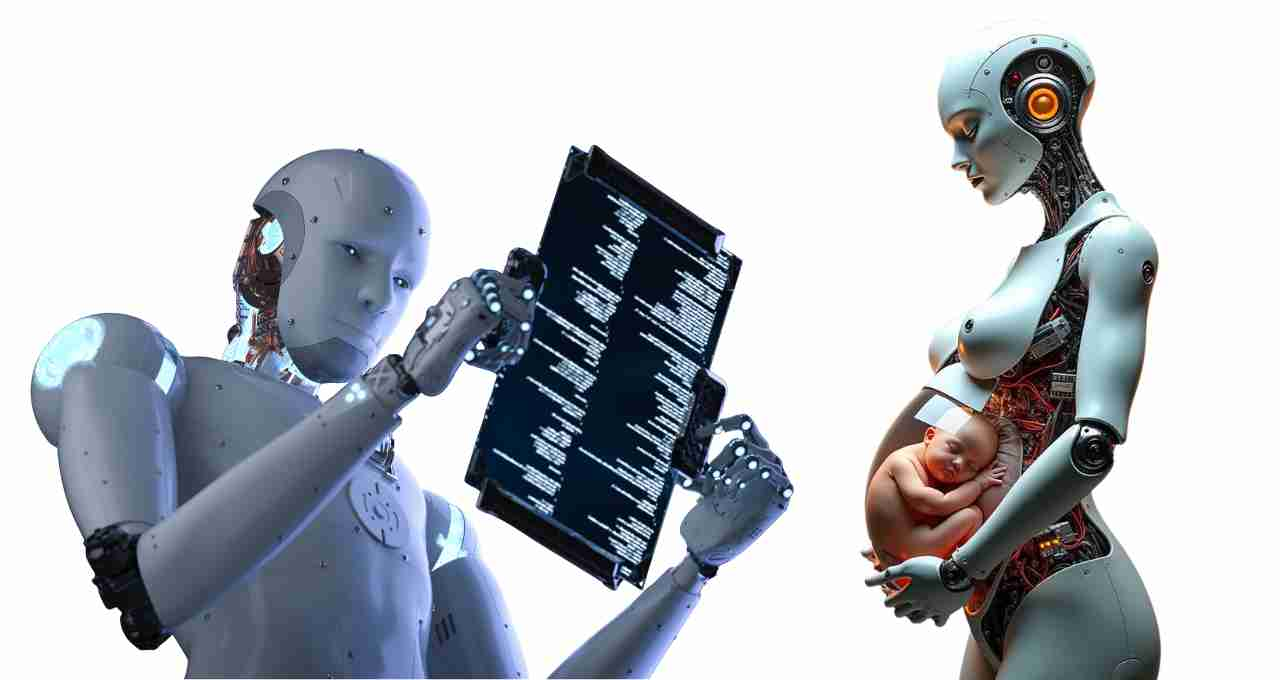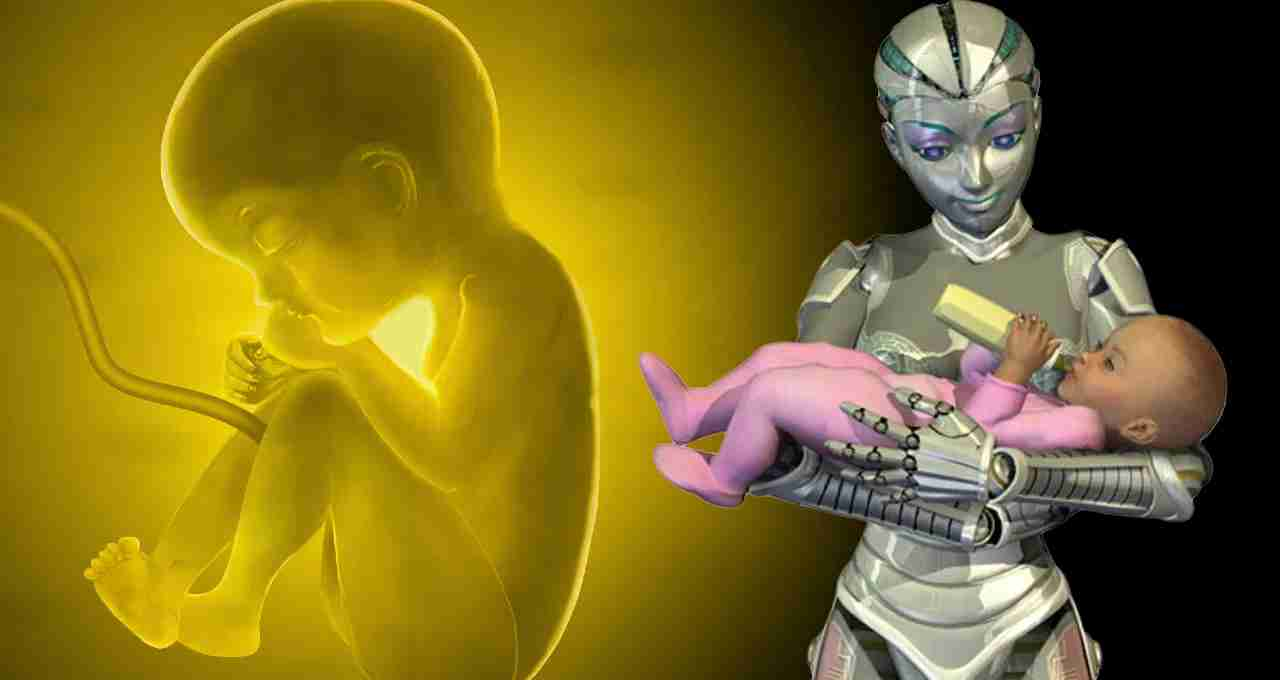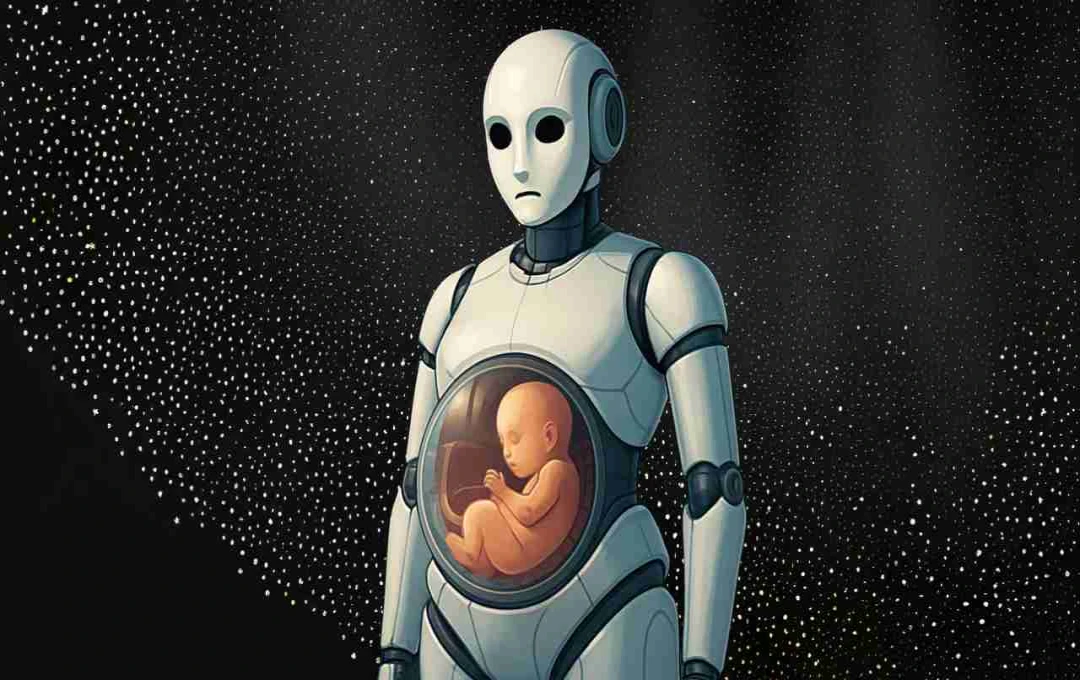China's Kiwa Technology is developing a 'pregnant robot' capable of conceiving and giving birth like a human. This technology is different from traditional surrogacy and IVF. The company is preparing to launch it within the next year.
Pregnant robots: The world of science and technology witnesses new discoveries every day, but this time, China's move has stunned the world. Kiwa Technology, a Chinese tech company, is developing a robot that can conceive and give birth like humans.
The company claims that this technology is different from traditional IVF (In Vitro Fertilization) and surrogacy and can be launched in the market within the next 12 months.
Robotic Womb Mimicking a Human Uterus

According to Chinese media reports, this robot will be equipped with a special incubation pod and a robotic abdomen, which will function like a woman's womb. The entire process from conception to delivery will be replicated artificially. That is, the development of the embryo, nutrition, and finally the birth of the child—everything will happen inside the robot's 'body'.
The company says that this technology will give women and couples the option to fulfill their dream of having a child without going through the difficult process of pregnancy.
Price and Availability
Zhang Kifeng, CEO of Kiwa Technology, said that the price of this pregnant robot will be around 100,000 yuan (about $13,900 US dollars or 1.2 million Indian rupees). If everything goes according to plan, it could be available to consumers by early 2026.
Who is this technology for?
According to Zhang Kifeng, this technology is being created for couples or individuals who want children but do not want to go through the process of pregnancy, or are unable to do so for medical reasons. He said,
'Our aim is to make the reproductive process safer, more convenient and controlled, so that the dreams of those who cannot become parents through traditional methods can be fulfilled.'
Discussion and Controversy on Social Media

As soon as this news came to light, a massive discussion started on the Chinese social media platform Weibo. Within a few hours, the topic registered more than 100 million views. Supporters called it a 'technological boon for humanity', especially for those struggling with infertility or other medical problems.
However, critics believe that a child born in a robotic womb will not receive the same sense of motherhood and connection that comes from a natural womb. In addition, questions are being raised about the long-term health effects of this technology and the mental development of children.
Experts' Opinion
- Dr. Li Wenjing, a reproductive specialist, says that the technology should be used in a limited and controlled manner, so that it is adopted only in cases of medical need.
- According to Prof. Mei Zhao, a researcher, “Such machines cannot replace natural birth, but they can certainly become an option in some selected cases.'
Ethical and Legal Challenges
This technology is challenging not only from a scientific point of view, but also from an ethical and legal point of view. Experts believe that if it is commercially successful, it could bring major changes in the reproductive industry, which could change the definition of traditional family and motherhood. Many countries do not have clear laws for such technologies, which raises the possibility of legal disputes in the future.















